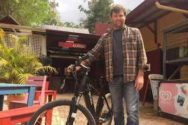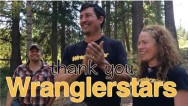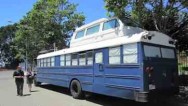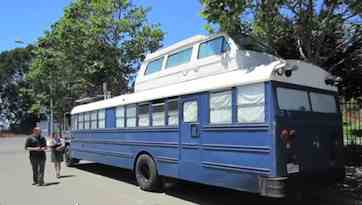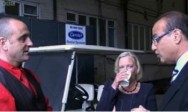Working almost non-stop as young professionals, they knew something was missing.
“We were both working a lot of hours – 80 hours per week — eating out three meals a day, coming home to a dark house,” says Cody, one of the stars of the Wranglerstar You Tube channel. “Everyone you meet says, ‘Oh, you guys have it made. You’re making so much money. You’re building these careers.’ But we didn’t really like it. We didn’t get to spend any time together.”
That’s when his wife, Jessica, learned through a Bible study about a couple who had moved to Montana, dropped off the electrical grid and created a new life.
“It was just happen-chance they were speaking in town,” Cody says. “We met them and they invited us to spend a weekend with them in Montana. On the drive home, we decided to do this. We put our house up for sale when we got home.”
What has followed is the creation of the You Tube channel where the couple and their son, Jack, share their story about modern homesteading. Despite putting a part of their lives out on the Internet, the couple prefers to maintain their privacy and asked that their last name not be used in this story.
Jessica also has written a book. They’ll hold a book signing from 4-6 p.m. Friday at Yankee Peddler West in downtown Fremont.
The You Tube channel started out as a hobby. But it’s grown into much more. It now has nearly 271,000 subscribers and the videos have been several million times.
And it has become a way to help support their lives.
“When we made that decision, no one was making money on You Tube. It was done as a hobby,” Cody says. “I remember when we got our first check from You Tube. It was $100 or something. I thought, ‘This isn’t real. This is never going to cash.’ … That really changed my way to thinking.
“I think she was really annoyed from my You Tube videos. I think probably she thought it was taking away from a real job. But I really started to realize we could do this, we could make a living at this.”
It is more than they anticipated, Jessica says.
“The subscribers want to watch daily,” she says. “It’s definitely more work than we anticipated.”
Still, they are able to keep some privacy.
“When we do apple pressing (the subject of recent video), that’s half an hour of our life,” says Jessica, who grew up in Fremont – a fact not mentioned in the videos. “The rest of our life is not shown on camera.”
All those videos – and the connection to their subscribers – led to the new book.
“There’s this publishers and his wife is a viewer of ours,” Jessica says. “She went to him and said, ‘I think you …


